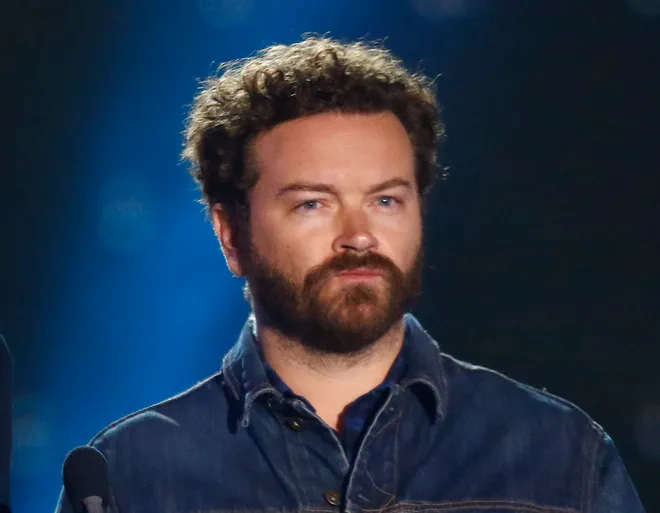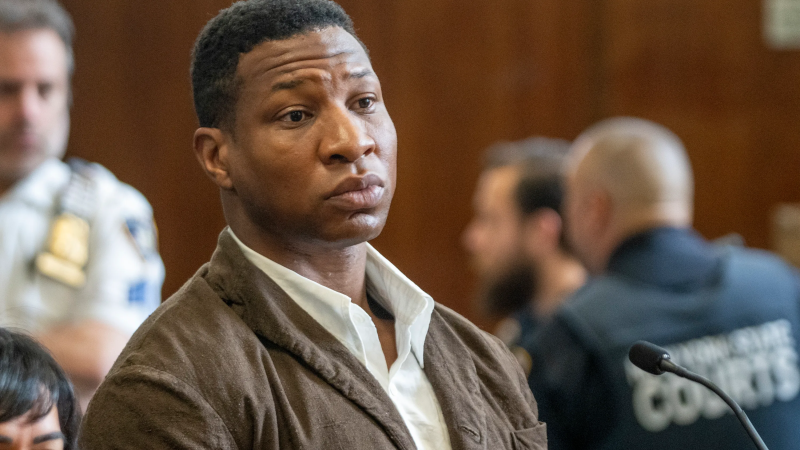Danny Masterson transferred out of maximum security prison. Why are we still talking about him?
Danny Masterson is serving a 30 years to life sentence in prison after a jury convicted him of raping two women last fall. But the story hasn't ended there: He just was moved out of Corcoran State Prison in Central California, a maximum security prison once home to Charles Manson.
But why are we still talking about him, observing his every move?
While we are certainly fascinated with celebrity scandals, experts point out that this case in particular dredges up more than idle, eyebrow-raising gossip. People are bound to have all kinds of feelings about high-profile sexual assaults, media treatment of celebrity prisoners and more. It depends who you're talking to.
Overall: "This appeal is also related to the rubbernecking attraction of an accident on the side of the road that we witness while driving," says criminologist Scott Bonn. "We can't help staring although we know it may be inappropriate."

Celebrities who commit crimes may still feel like characters you watch on TV – even though their actions prove disturbingly real.
"When the real world plays out like entertainment, like a well-told story, people become that much more interested in it," says Karen Kovacs North, clinical professor of communication at the University of Southern California. "We saw it also with Casey Anthony and her trial. People become fascinated because we want to solve the puzzle or solve the mystery the way that we would if we were watching or reading an Agatha Christie novel."
What Danny Masterson's story says about prison
Masterson will now be imprisoned at California Men's Colony, a male-only state prison in San Luis Obispo, California, that offers minimum and medium security. A California Department of Corrections and Rehabilitation representative told USA TODAY it "cannot disclose information about reasons for transfers or detailed housing information."
Though the high level of interest in the Masterson case may be unwarranted, the case is giving many celebrity-watchers a glimpse into what the criminal justice system looks like – along with its inequities, according to Brad Fulton, associate professor of management and social policy at the Indiana University – Bloomington.
"Little is known about the day-to-day experiences of incarcerated people in prison," Fulton adds. "The media attention surrounding Masterson’s transfer increases awareness about the unsafe and undesirable conditions of maximum security prisons and the unequal allocation of supportive resources among prisons."
For example, these prisons typically "have limited access to adequate healthcare and recreational activities, whereas many medium security prisons offer education programs and counseling services," Fulton says. Onlookers reading between the lines may begin questioning who has the opportunity to get moved out of maximum security and who doesn't – and why.
"People with access to resources are often able to avoid the harshest aspects of the penal system," Fulton says. "They can leverage their resources to obtain a more desirable prison assignment, receive a reduced sentence and even avoid incarceration altogether."
More details:'That '70s Show' actor Danny Masterson transferred out of maximum security prison

What we should really be talking about when it comes to Danny Masterson
Perhaps we are having the wrong conversation about Masterson in the first place.
Did we need to know these particulars about Masterson's prison time? No. Do we want to? For some people, absolutely. "We do not like uncertainty, and we work very hard to reduce uncertainty in all aspects of our lives," Kovacs North says. The same applies for stories outside of our own.
She adds: "Why do people care which prison he's in? We're not going to go visit him, right? Who cares? But the reality is that we once again, care for the same reason, because now we're in a situation where we want to know why that happened."
People may also have a visceral, violent reaction to perceived leniency regarding Masterson. "Hearing the word 'minimum' in association with Masterson's prison transfer triggers the public perception that yet another celebrity rapist is receiving favorable treatment and that there is little concern for the victims," says psychologist Reneé Carr.
Important:Danny Masterson's wife stood by him. Now she's filed for divorce. It's not uncommon.
On that point, David Schmid, associate professor of English at the University at Buffalo, says: "In an ideal world, Masterson's celebrity would be the entry point for a discussion of a variety of issues, including #MeToo and violence against women more generally." He knows, though, people will mostly click on stories simply because a celebrity graces a headline.
To that end: Consider the bigger picture when perusing updates about Masterson. You might surprise yourself by digging deeper instead of staying stuck in shallow gossip.
Disclaimer: The copyright of this article belongs to the original author. Reposting this article is solely for the purpose of information dissemination and does not constitute any investment advice. If there is any infringement, please contact us immediately. We will make corrections or deletions as necessary. Thank you.







